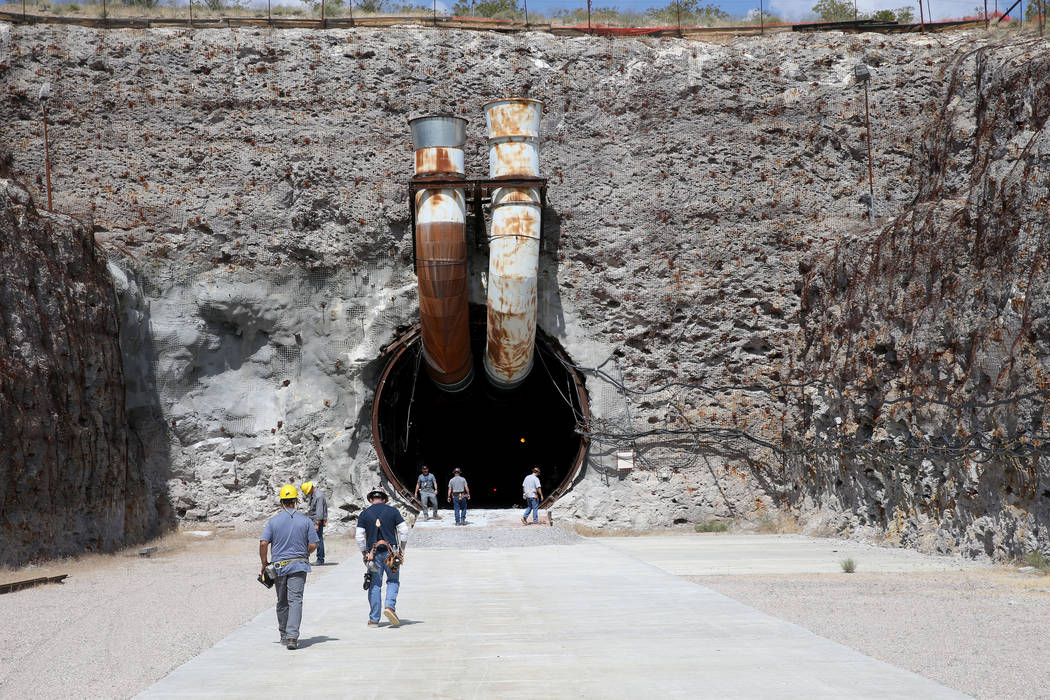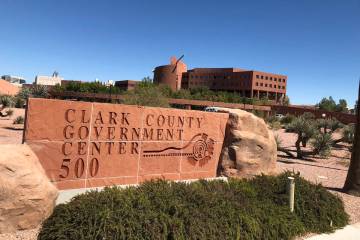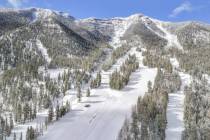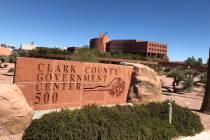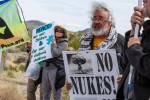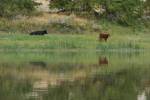Yucca Mountain dormant, but definitely not dead
WASHINGTON — Yucca Mountain may be dormant, but it never really dies.
While legislation to restart the stalled licensing process for the nation’s proposed nuclear waste dump appears to be stalled in the House, efforts have emerged in the Senate to renew work on the repository.
The House has turned off the money, at least for this fiscal year.
But pro-Yucca lawmakers are pushing legislation to authorize money that could be slipped into last-minute spending bills for the next fiscal year.
Even though the House passed an authorization bill on a voice vote with Yucca money in it, the chances of it getting a final vote on the floor are almost zero, given the opposition of House Speaker Nancy Pelosi, D-Calif.
On the same day the House passed that bill, Sen. John Barrasso, R-Wyo., chairman of the Senate Committee on Environment and Public Works, filed an identical bill in the Senate, where he hopes to corral enough votes to pass it.
“My legislation will advance the safety review of the Yucca Mountain facility. It also takes important steps to strengthen the nation’s nuclear waste management program,” Barrasso said in a statement introducing his legislation.
And there’s another bill, which would allow interim storage at various sites around the country until the Yucca issue is resolved.
That bill is favored by Sen. Lisa Murkowski, R-Alaska, chairwoman of the Senate Energy and Natural Resources Committee, and by Sens. Lamar Alexander, R-Tenn., and Dianne Feinstein, D-Calif., the chairman and ranking Democrat respectively on the Senate appropriations subcommittee for energy.
Barrasso is fighting to get his bill to the floor first.
Nevada’s two Democratic senators, Catherine Cortez Masto and Jacky Rosen, oppose the Barrasso bill and any other that would develop Yucca Mountain as a permanent site for nuclear waste storage.
In the House, the state’s delegation, led by Rep. Dina Titus, Rep. Steven Horsford and Rep. Susie Lee, all Democrats, and the lone Republican from Nevada in Congress, Rep. Mark Amodei, urged lawmakers to instead consider a consent bill that would require state and local approval before building a nuclear waste repository.
The Nevada delegation won a major victory this year, blocking funds for Yucca Mountain by stripping out $120 million from President Donald Trump’s budget blueprint that had been included in a House spending bill for the Department of Energy by the Appropriations Committee.
Amodei, a member of the committee, voted to take the money out of the bill, and Democrats in the delegation lobbied colleagues on the panel to vote against it as well.
The Senate appropriations subcommittee approved a spending bill for the Energy Department that also contains no funding for Yucca licensing. But that bill is tied up in legislation still before the House and Senate.
But even if bills authorizing the government to resume work on Yucca pass, they couldn’t proceed without money.
Nevada officials are gearing up for a battle to stop both authorization bills and money bills that lawmakers try to sneak through.
The push for Yucca Mountain began under President Ronald Reagan, but licensing accelerated during the administration of President George W. Bush.
That came to a halt in 2011, when President Barack Obama’s Energy Department withdrew funding and closed agencies involved with the project.
A federal court ordered that licensing continue with the meager funds that remained, however.
Then-Senate Majority Leader Harry Reid, D-Nev., was instrumental in blocking any more money from flowing to the project, leaving the licensing process at a standstill. Reid has repeatedly declared Yucca Mountain dead.
But the Trump administration has proposed reviving the license process and has asked for money to do so in its past three budgets. But the project has been blocked in the Senate and now in the House.
Congress designated Yucca Mountain as the only site for storage of nuclear waste produced by power plants in 1987, but political opposition and other setbacks have stalled the project for three decades.
Nye County, where Yucca Mountain is located, and other rural Nevada counties favor the project if it is deemed safe.
Yucca means high-paying construction, engineering and technical jobs for those areas.
In addition to the state, native tribes, Las Vegas business and gaming interests, environmentalists and urban residents oppose the project, which is located 90 miles from the Strip.
Meanwhile, radioactive waste produced from power plants and Navy ships has been stockpiled at sites in 39 states across the country, Barrasso said. The federal government’s failure to take possession of the waste and store it, as required by law, has resulted in fines of roughly $2 million per day.
Contact Gary Martin at gmartin@reviewjournal.com or 202-662-7390. Follow @garymartindc on Twitter.



